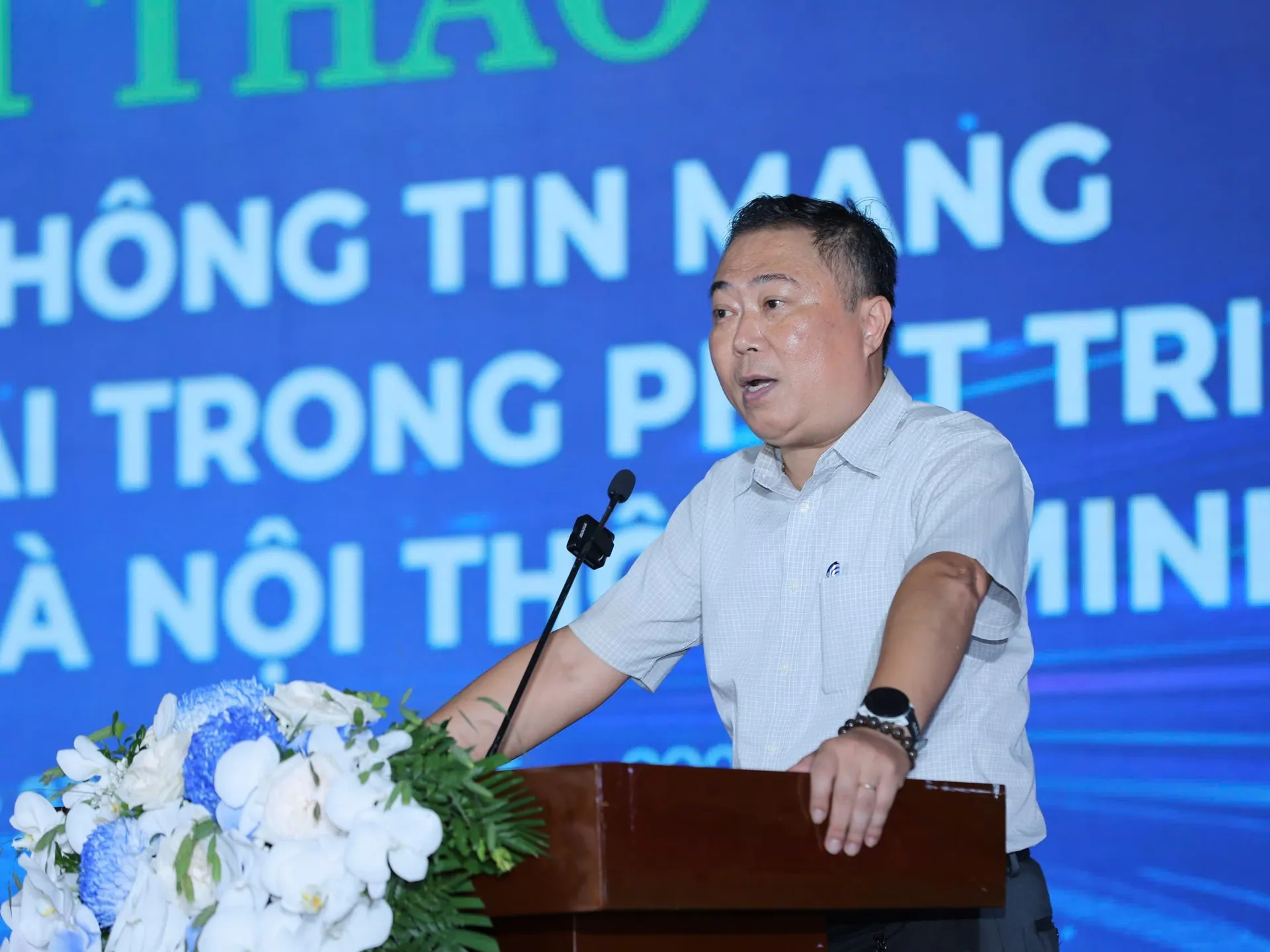Workshop explores AI and cybersecurity for smart Hanoi
The event marks the 70th anniversary of Hanoi’s liberation and the 25th anniversary of the Hanoi ICT Association.
A workshop titled “Cybersecurity and AI Applications in Developing a Smart Hanoi” on September 27 kicked off the implementation of a program partnered between the Hanoi Department of Information and Communication and the Hanoi ICT Association (HANICT).
| Dinh Thien Duc, Vice Chairman of HANICT, speaks at the workshop. Photo: the Hanoi Department of Information and Communication |
The event highlighted the growing role of artificial intelligence (AI) in everyday life, as it increasingly replaces manual labor. Countries worldwide are formulating AI strategies to drive economic growth. In Vietnam, the integration of AI in government agencies through virtual assistants and chatbots become necessary to improve operational efficiency.
During the workshop, Dinh Thien Duc, Vice Chairman of HANICT, emphasized that the event provides a platform for experts and local officials to discuss recommendations for building a smart Hanoi.
He noted that the Ministry of Information and Communications has tasked companies with developing four virtual assistants to support Vietnamese citizens: a legislative assistant, an executive assistant, a judicial assistant, and a legal assistant.
Duc highlighted Hanoi's leadership in utilizing AI for disease prevention during the Covid-19 pandemic, where virtual assistants made millions of calls to inform residents about health measures and social policies. Districts like Cau Giay and Tay Ho have implemented AI chatbots to streamline administrative procedures.
Pham Minh Hoan, a lecturer at the School of Technology, National Economics University, discussed the opportunities and challenges presented by AI in developing a smart Hanoi. He explained that AI can automate numerous tasks, boosting efficiency and productivity in sectors such as manufacturing, healthcare, and services. This technology also fosters advances in self-driving cars, intelligent robots, and machine learning systems, enhancing quality of life through applications in healthcare, education, and urban management.
However, AI-driven automation could result in job losses in some industries, requiring workers to adapt to new skills as the labor market changes.
He also raised ethical and privacy concerns associated with AI, particularly regarding the collection and use of personal data, and warned of the potential misuse of AI for cyberattacks or misinformation.
Local experts at the workshop stressed the importance of supporting digital transformation in the capital while concerned about malware threats and cyberattacks on government agencies, rising risk of cyber warfare.
Delegates recommended the priorities of cybersecurity in adhering to a four-layer safety model and classifying information security into five levels to effectively contribute to building a smart Hanoi.
| The design of the smart city project in Dong Anh District, Hanoi. |












